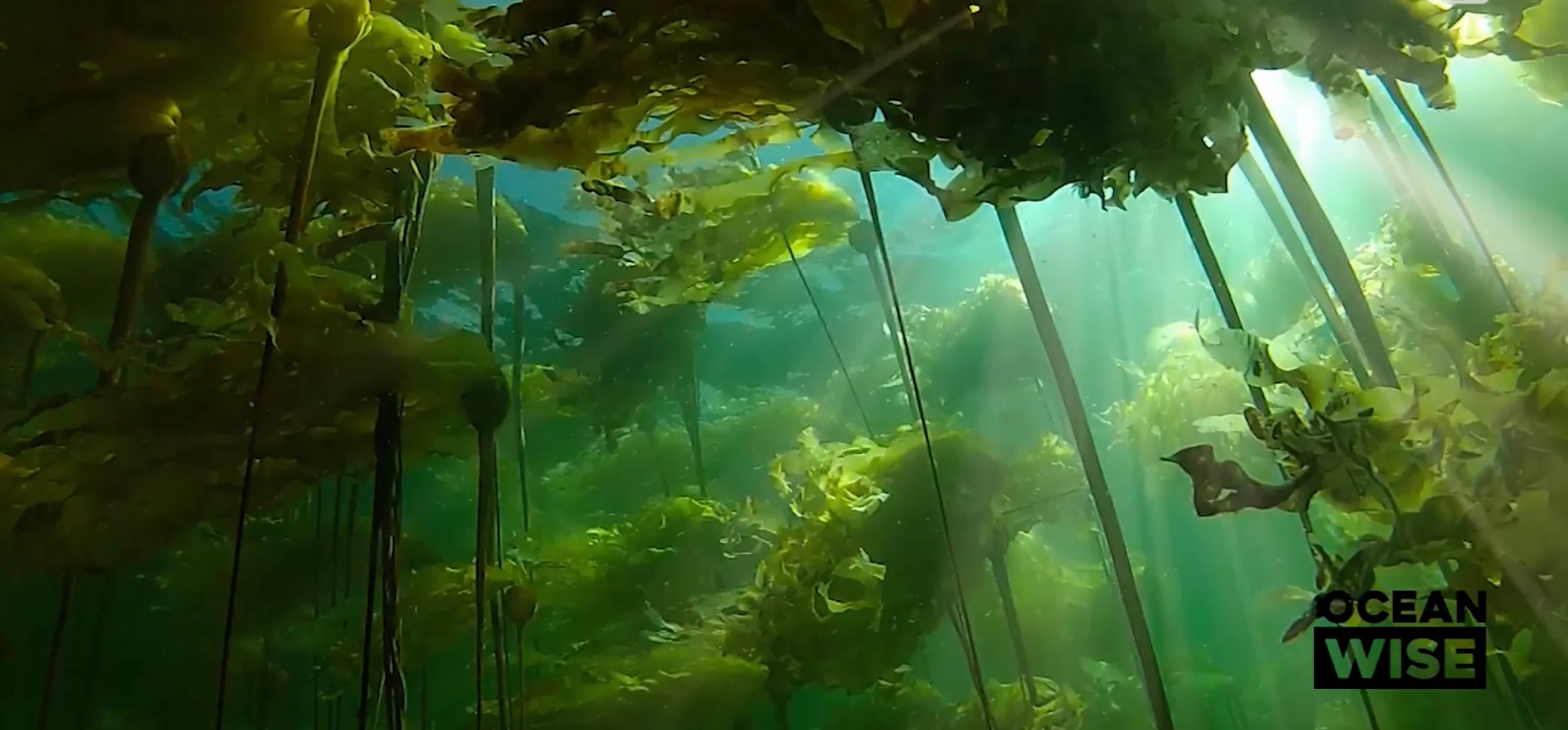
The Forest Beneath the Waves: Why kelp matters and how Canadians can help
Why planting kelp could be Canada’s smartest investment
Whether it’s a deer in the forest, a blue jay in the tree, or an elephant in the desert, forests come alive in our imaginations because of the creatures that inhabit them. But what about the forests we can’t see?
Beneath the surface of Canada’s coastal waters lies a hidden world—lush, swaying kelp forests that rival the biodiversity of the Amazon. Most Canadians will never glimpse them firsthand, but their impact reaches far beyond the ocean floor. And now, Ocean Wise is asking Canadians to help grow them.
The global conservation organization isn’t waiting for governments or corporations to act. They’re doing it themselves, planting kelp in collaboration with Indigenous communities along the coastlines of British Columbia and Chile.
“We’re the doers of conservation,” says Ocean Wise CEO Lasse Gustavsson. “We plant kelp ourselves, with our hands in the water, alongside the communities who’ve stewarded these ecosystems for generations.”
Why Kelp Matters
Kelp forests are biodiversity powerhouses. They provide food and shelter for species Canadians know and love, even if they’ve never seen them up close.
“Kelp doesn’t always get the spotlight it deserves,” Gustavsson explains. “The average person can’t go for a stroll in an ocean forest the way they would on land. But these forests are just as critical for our planet. Sea otters wrap themselves in it. Rockfish and salmon hide among the fronds. Crabs, snails, sea stars all thrive there. Even seals and sea lions hunt in this forest. It’s an underwater rainforest.”
And like terrestrial forests, kelp absorbs carbon, buffers coastlines from erosion, and supports fisheries. It’s a natural climate solution hiding just below the surface.
Can Canadians Make a Difference?
It’s a big ocean, but Gustavsson is adamant: Canada has a big role to play.
“We’ve got the longest coastline in the world, as well as a strong tradition of ocean conservation,” he says. “Canada benefits a lot from the ocean; its fisheries sector alone is worth over $7 billion a year, but it does it by carefully balancing sustainability with the economy. When Canada invests in ocean health, we’re not just protecting our waters, we’re setting a global standard for what a blue economy can look like.”
In a time of economic uncertainty, Gustavsson’s framing of kelp restoration as an investment feels especially relevant. The ocean is one of Canada’s greatest natural assets. Keeping it healthy isn’t just good for the planet—it’s good for business, food security, and future generations.
The Ask: Invest in the Ocean
Ocean Wise is calling on Canadians to invest in the ocean. Not just financially, but with their time, money, and voices. Whether it’s supporting kelp planting, joining shoreline cleanups, or simply sharing the story, every action helps.
Because even if we can’t see the kelp forests, we can feel their impact. And in the fight for a healthier planet, that’s a forest worth caring about.

